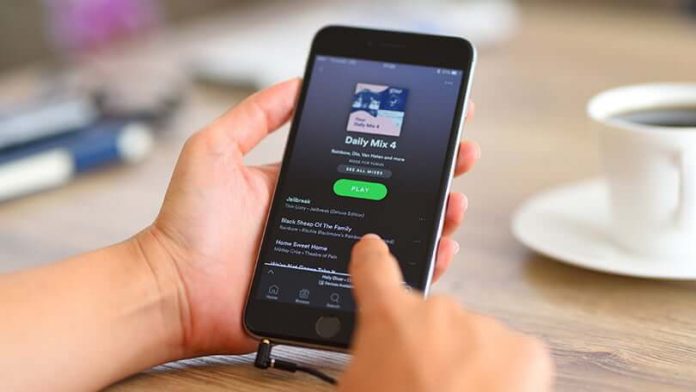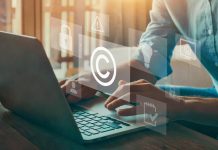This article is written by M.S.Bushra Tungekar from the University of Mumbai Law Academy. The author in this article analyses the copyright laws surrounding musical works.
Table of Contents
Introduction
We’ve all heard songs playing in a cafe or instrumental music playing in a mall or an elevator. Did you know that you cannot play such music without permission?
Yes! You read that right! The owners of these establishments are required to obtain a license for playing the music.
Why do you ask? Isn’t music already out there?
The answer to the question is that music or any piece of work that is created by an artist is an intellectual property of the artist. This property although intangible must be protected and that is what copyright does. It protects the rights of the owner of the music. The owner of the copyright for any particular music is permitted to perform the music. Anyone other than that would require permission to do so, the permission is in the form of a license.
But what about the music I hear on the music streaming apps like Gaana or Spotify or amazon music? What about the downloaded music? Is it illegal to download music? How do I know whether I am infringing on any music copyright? What about the music used in Instagram videos? All these questions shall be answered in the article.
What is copyright?
Copyright is basically when a creator of a particular invention has exclusive rights over intellectual property. It is a protection against the use of intangible property without acknowledging or giving due credit to the creator or owner of the property.
It protects the creation or inventions from being duplicated or used by a third person without the owner’s permission. Not only that but copyright covers a bunch of rights such as sale, reproduction, and adaptation. One can get a copyright for musical, literary, dramatical work, artistic work, computer programs, sound recording, films, and cinematographic work.
In India, copyrights are governed by the Copyright Act,1957. Section 14 of the Copyright Act talks about the meaning of copyright. The Act defines “copyright” as an exclusive right to do or to permit another person to carry out certain other acts.
Under Section 14 Copyright in case of literary, dramatic, or musical work, (except computer program)
- Reproduction of the work includes storing the work in any medium.
- Furnishing copies of the work to the public other than the ones that are already in circulation.
- Performance of the work in public.
- Communication about the work to the public.
- To make any cinematographic work or any sound recording in respect of the work.
- To translate the work.
- To make any adaptations or to alter the work in any form.
In the case of computer programs
In addition to the acts mentioned above, to sell or to give it on rent for commercial purposes.
In the case of artistic work
Reproduction of the work in any form including,
- Storing in any form including electronic forms,
- Representation in three dimensions of a two-dimensional work;
- Representation in two dimensions of a three-dimensional work.
In the case of cinematographic work
- To make a copy of the film.
- To sell or to give it on rent for commercial purposes.
- Communication about the film or cinematographic work to the public.
In the case of sound recordings
- To make a new sound recording including the copyrighted sound recording.
- To sell or to give it on rent for commercial purposes.
- Communication about the film or cinematographic work to the public.
Here we shall be focusing on the musical works. Musical works have been defined as work that includes music or any of its graphical representations but it excludes words, actions which are to be sung or performed with the music according to Section 2 subsection p of the Copyright Act.
Is it illegal to download music?
Yes and no. Downloading music is not illegal however downloading copyrighted music without authorization is illegal. When a person distributes all copyrighted music without the permission of the owner, he refrains the owner from gaining profit from the copyright music.
The illegally downloading, reproducing, distributing, and copying of copyrighted music without having the due license or permission to do so is deemed as music piracy. Pirated copies of the music are downloaded from websites such as torrent, or mp3feelings.com, or 22 beats.com, or strongbox. pk, etc many such websites distribute pirated versions of the music.
Difference between downloading the music legally and illegally
As said earlier that downloading music is not illegal the way and the source of downloading such music determines whether the music downloaded is legal or illegal.
Legal downloading
Many times the artist itself makes the music available to the public for free, downloading such music although copyrighted is not illegal. When you pay for acquiring copyrighted music it is not illegal. There are various streaming services available in India. These services are licensing the music or the tracks from the artists or the music companies themselves. These include Gaana, Spotify, Amazon Music, and Savan. These music stores allow the users to not only stream the music but sometimes also allows the customers to download such music.
What is copyright infringement?
Section 51 of the Copyright Act defines when a work’s copyright is considered to be infringed. According to this Section;
- When any person without permission (in the form of a license) granted by the owner or the registrar of copyright does any act which the owner of the copyright is permitted to do.
- Any person who lets a place be used for selling, distribution, or to be used to make the copyrighted work available to the public, provided such activities are infringing the copyright.
- Any person importing infringed copies of the musical work
- Any person reproducing the copyrighted work without obtaining the necessary and required permissions or licenses.
In other words, copyright is infringed whenever a person uses any other person’s copyrighted work without giving due credit to the person or without the permission of the original owner. When a work is protected by copyright it cannot be duplicated, distributed, reproduced, adapted, or altered in any manner or form, electronically or otherwise without the due license or permission of the owner of the original work.
Exceptions to copyright infringements
Section 52 of the Copyright Act enforces a statutory limitation on the use of the exclusive rights of the owner. Therefore Section 52 provides for exceptions, it permits a fair dealing of the copyright. Use of certain copyrighted work that would have otherwise constitutes copyright infringement.
The concept of fair dealing or fair use is embodied in Section 52. This section has been amended time and again. The doctrine of fair use permits any person to use or to reproduce copyrighted work. The doctrine of fair dealings initially originated to ensure that the rights of the public to use copyrighted works for legitimate reasons such as criticisms or reporting are not excessively restricted.
However one must keep in mind that the use of “ fair dealing” cannot be leveraged to seek refuge from copyright infringement. Section 52 although does not define the meaning of “fair dealings” is rather comprehensive and elaborative. According to Section 52, any person can use the copyrighted work except for computer programs:
- Public and private research and use.
- For criticism or review.
- To report including the reporting of lectures delivered in public.
- Storing the copyrighted material for the purpose of section 52 would not amount to copyright infringement.
- Storing any material for a short period because of a technical process for transmission of the work to the public.
- Reproduction of work for a judicial proceeding.
- Reproduction or publication of work done by the legislature.
- Replication of work in a certified copy made under the law.
- Reading of or recitation of a work published in a public domain concerning dramatical or literary work.
- Performance of dramatic or musical work for a non-paying audience and the benefit of the religious institutions by an amateur club.
Who is the owner of the copyright of a musical work?
The ownership of musical copyright involves various aspects. Various people might be involved in the creation of a musical work such as a person who wrote the lyrics, the person who is the creator of the music, or the producer of the musical work.
The general rule states that an author of the original work is the first owner of the copyright. As per Section 2 (d) (ii), the author of a musical work is the composer of the music. The composer is further defined as the person who composes the music irrespective of whether he/she records the said music in any form of graphical notation
Section 17 of the Copyright Act covers the exceptions to the rule of the First owner. The exceptions include
- In the case of literary, dramatic, or artistic works, the work made by the author in the course of his employment by the proprietor or under a contract of apprenticeship, the said proprietor shall be the first owner of the copyright.
- In the case of photography, a painting or a portrait or a cinematographic film made by the author for consideration for any person will be the first owner of the copyright. The rights of an original author of a musical work or dramatical work will not be affected that has been incorporated in a cinematographic work.
- The rights of an original author of a musical work or a literary work or artistic work incorporated in a cinematographic work during employment or under a contract shall remain unaffected and the employer will be the first owner unless otherwise provided in the contract or agreement. This has been clarified by the Amendment brought to the copyrights act in 2012.
- A person addressing the public or delivering any speech in public is the first owner of the copyright. In case such an address or speech is delivered at the instance of another then that person shall be the first owner of the copyright.
- In case the author works for the government or at the instance of the government, the said government shall be the first owner of such copyright.
- Similarly in the case of work done for any public undertaking or an international organization the said public undertaking or the international organization will be the first owner of the work.
Therefore the lyrics of a song can be protected by copyright under the literary work and the owner of the copyright would be the lyricists. The music can be protected under the copyright of musical work and an author (composer) can be the owner of the copyright. The song, if recorded, can be protected under the copyright of the musical recording and the producer of such musical recording can be the owner of the copyright. Now the composer, the producer, and the lyricists can work in harmony over one song and have their work protected by different copyrights. For example, A producer can make a sound recording of the work created by both the lyricist and the music composer and the producer can communicate or telecast the said sound recording to the public after he has obtained the due license from the lyricist and the composer.
The lyricist and the composer cannot intervene in the exclusive right of the producer to communicate the sound recording to the public. The producer is the first owner of the copyright of the said sound recording. However, the lyricist and the music composer are the first owners of their work under the copyright of literary work and musical work respectively.
What about music on Gaana or Spotify or amazon music?
As we know the exclusive rights of copyright vests with the original owner of the copyright. The owner of such copyright can transfer or license this right to a third party. According to Section 30 of the copyright act, the owner of a copyright can grant an interest in the right to any third party.
Therefore companies such as Gaana, Spotify, or Amazon music, etc take licenses to make the music available by their companies. This is done by signing licensing agreements. These agreements are signed between artists and music streaming companies. This can be a little expensive and inconvenient for individual artists therefore to facilitate the process there are copyright societies which act as an agent.
The artists are duly compensated for their work through royalty payments. The terms and conditions are mentioned in their music license agreement.
How does piracy affect the music industry?
Due to the advancement of smartphones, there has been a rise in the consumption of pirated music in India. Illegal download or music piracy affects the revenue of the music industry. According to the International Federation of the Phonographic Industry -Indian Music Industry; (IFIP-IMI) ‘Digital Music Study’ 2019, due to music piracy, the music industry is to face an estimated loss of 1500 crore yearly.
Piracy affects the growth of the music industry and hampers the economy of the industry. Due to piracy many artists, publishers, and composers are not sufficiently compensated. Indians are not accustomed to paying for music. There is a culture wherein it has been assumed that music is a free product.
Conclusion
Any music that is created by an artist belongs to that particular artist. The artist who owns the copyright of such music. The said copyright protects his or her work from being used without the permission of the owner. Downloading music is illegal if the music is downloaded without any due authorization. The music we access on music streaming platforms such as Ganna, Spotify, Wynk music, Amazon music, etc is licensed music. This means that the said streaming platform has due authorization to make the music available to its users. These platforms may or may not allow the users to download such music depending upon their license.
LawSikho has created a telegram group for exchanging legal knowledge, referrals and various opportunities. You can click on this link and join:
 Serato DJ Crack 2025Serato DJ PRO Crack
Serato DJ Crack 2025Serato DJ PRO Crack











 Allow notifications
Allow notifications


